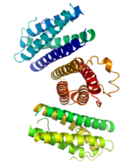Biosimilars/Research
|
Posted 02/09/2022
Biologicals have significantly improved patients’ quality of life, yet, access to these critical medicines are constrained due to cost and this is being exacerbated by the misperceptions around biosimilars. In particular, imprecise terminology has been applied to biosimilars, leading to the implication that biologicals designated as interchangeable by the US Food and Drug Administration (FDA) are better biosimilars. The US is the only jurisdiction in the world with this additional designation from the regulator as an option for biosimilar sponsors to consider [1].























